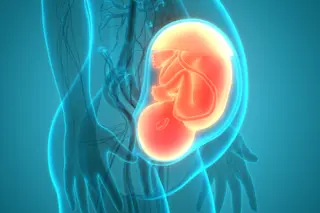Larry Moran has a post up, Who Owns Your Genome?, where he mentions me apropos of the HeLa genome disclosure:
In my opinion, there is no excuse for publishing this genome sequence without consent. Razib Khan disagrees. He thinks that he can publish his genome sequence without obtaining consent from anyone else and I assume he feels the same way about the sequence of the HeLa genome [Henrietta Lacks’ genome, and familial consent].
In response to Larry, I don't have a definitive opinion about the HeLa genome disclosure in terms of whether it was ethical to release it or not. "Both sides" have positions which I see the validity of. I think ultimately the root issues really date to the 1950s, not today, and they don't have to do with personal genomics as such. Also, I'd recommend Joe Pickrell's post, Henrietta Lacks’s genome sequence has been publicly available for years. Larry also has a question in the comments:
Let's try a thought experiment. Everyone is free to answer. I'd prefer a simple "yes" or "no" followed by an explanation. Imagine that you have paid to have your entire genome sequenced. You announce that you intend to upload it to a public site so that anyone can see it. Your parents, your siblings, and your children, all object, saying that this would violate their privacy. Do you upload it anyway? ("Yes" or "no." Please respect the rules of a thought experiment and don't try to quibble about the scenario.)
Yes, I'd upload it, and I will (since I've committed to uploading it when I have it done). Also note that my daughter is too young right now to give consent, and she probably will be too young when I upload the genome, so I'm going to do something which might impact her as a child. One nuance I would like to add though is that decisions may vary given circumstance. For example, if you have one of the high penetrance BRCA mutations, you may not want to expose your family's information for pragmatic reasons. But my question would be: why do people talk about their highly heritable illnesses in public forums already? I've seen media profiles of women with a BRCA mutation, with female relatives. By talking about this they're exposing their family's genetic information implicitly. Therefore, I suspect many of the pragmatic concerns are moot, because though there is privacy in regards to health information, there isn't a taboo about discussing one's health status in public. Most of the time people who have these diseases want their story put out there to aid in medical advancement and consciousness raising (though obviously there are exceptions). And that is a subset of the primary issue I have with many worries about privacy and policy and the genome. Just transpose the structure of worries into other fields, and you wonder where the analogous concern is elsewhere. For example, in regards to health I'd argue diet is a much larger issue than genomics, at least for non-aged morbidity. But there is a huge industry of diet books, and very few people see licensed nutritionists. The point here isn't to argue for paternalism or anti-paternalism, it's to suggest that genetics isn't special. It is important, it is cool, and it is fascinating. But so are many other things.













